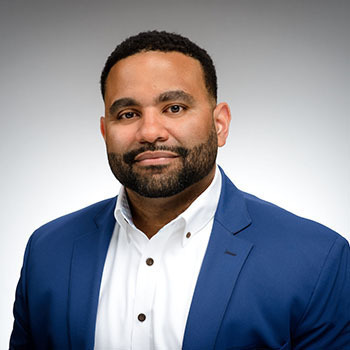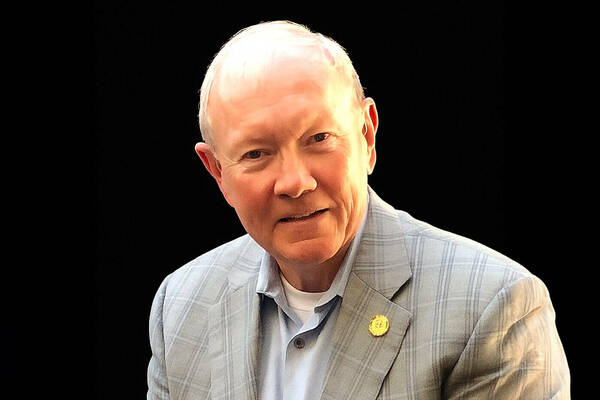Researchers develop new method to help investors predict firms’ decision-making, optimize portfolios and generate greater returns
Top management teams at most businesses are charged with maximizing shareholder wealth, making any actions that impede this goal their sole responsibility.
However, these management teams are often pressured to skirt normal business practices in order to meet earnings thresholds. One way is through myopic marketing spending — reducing marketing as well as research and development expenses to boost earnings, which increases short-term results at the expense of long-term performance.
New research from the University of Notre Dame introduces a novel method to help investors predict myopic marketing spending up to a year in advance, giving investors ample time to optimize their portfolios and generate much better returns.
A survey of 500 global executives, conducted jointly by the nonprofit Focusing Capital on the Long Term and McKinsey, found that top management teams continually feel pressured to meet near-term earnings targets at the expense of long-term strategies. They make myopic decisions to make the firm look better. This behavior often happens prior to capital increases, initial public offerings, share repurchases and C-suite retirements.
According to McKinsey, top management teams are willing to “cut long-term growth investments by 17 percent, on average, when faced with a 15 percent decrease in revenue.” This short-term decision making has a downside. It harms stakeholders, including investors, customers and the boards of directors. It is also associated with inferior stock-market performance in the long run, due to loss of market share and delayed innovation.
Unfortunately, investors only notice narrow-minded marketing spending after the fact, through public financial statements.

A new prediction strategy in “Can Words Speak Louder than Actions? Using Top Management Teams’ Language to Predict Myopic Marketing Spending,” forthcoming in the Journal of Marketing from lead author Andre Martin, assistant professor of marketing at Notre Dame’s Mendoza College of Business, along with Tarun Kushwaha from the University of Wisconsin, offers several advantages compared with existing methods.
Martin analyzed the language management teams use in earnings calls, specifically focusing on marketing and earnings emphasis, to predict future instances of myopic marketing spending. The study looked at 11 million sentences from nearly 25,000 quarterly earnings call transcripts of 1,197 firms between 2008 and 2019 and revealed that this approach can predict myopic marketing spending at a quarterly frequency.
“By focusing on the marketing and earnings emphasis language they use, we can forecast instances of myopic marketing spending up to a year in advance,” said Martin, a former software engineer and program manager for Xerox and defense contractor SRC Inc. who specializes in the downstream effects of firm communication. “This provides longer foresight and more frequent prediction opportunities (quarterly) than current existing prediction methods.
“We find that one standard deviation increase in earnings emphasis is associated with a 23.68 percent increase in the likelihood of future myopic marketing spending.”
The findings also showcase fiscal impact.
The researchers compared the financial returns of firms that engage in myopic marketing spending with those that do not and found that using this method to avoid investing in myopic firms yields an additional 6.44 percent in returns over four years. This translates to 1.61 percent annual abnormal returns over existing prediction methods.
“More than just financial gains, this study’s findings have profound governance implications,” Martin said. “They equip boards with an early detection tool for executive actions that could harm long-term firm value, enabling timely intervention.”
They also empower individual investors with insights into executive intentions.
This prediction tool provides stakeholders, regulators and firm competitors with valuable insights into potential top management actions. These actions could affect not only long-term firm value but also market conditions. Reducing the information barrier around executive intentions enables greater monitoring through early detection of myopic actions.
Contact: Andre Martin, 574-631-0711, amarti94@nd.edu
Latest ND NewsWire
- Researchers deconstruct chikungunya outbreaks to improve prediction and vaccine developmentThe symptoms come on quickly — acute fever, followed by debilitating joint pain that can last for months. Though rarely fatal, the chikungunya virus, a mosquito-borne illness, can be particularly severe for high-risk individuals, including newborns and older adults. While the virus is common…
- Eck Institute investigator to strengthen postpartum care for Indiana mothersYenupini Joyce Adams, associate professor of the practice and maternal health lead for the Eck Institute for Global Health at the University of Notre Dame, is partnering with Beacon Health System to pilot a new, first-of-its-kind postpartum care model in the South Bend-Elkhart community.
- Gen. Martin Dempsey to speak at Notre Dame Forum event on ‘Hope, Global Stability and the Role of the United States’Gen. Martin Dempsey, the retired 18th chairman of the Joint Chiefs of Staff, will join University President Rev. Robert A. Dowd, C.S.C., for a fireside chat at 4 p.m. Friday (Oct. 10), as part of the 2025-26 Notre Dame Forum. The discussion, titled “Hope, Global Stability and the Role of the United States,” is part of the exploration of this year’s Notre Dame Forum theme, “Cultivating Hope.” It will take place in Rooms 215/216 of McKenna Hall and will also be livestreamed. The event is free and open to the public.
- University of Notre Dame joins the Global Coalition of Ukrainian StudiesThe University of Notre Dame has joined the Global Coalition of Ukrainian Studies after signing a memorandum of cooperation, formalized Sept. 24, at the Ukrainian Institute of America in New York City. Notre Dame joined four other American institutions that were also publicly welcomed to the coalition at this event: Arizona State University, Columbia University, Manor College and the Shevchenko Scientific Society.
- One year later, Inauguration Build a ‘dream come true’ for Habitat familiesOne year later, work on Inauguration Build 2024 is complete, offering shelter and so much more to five local families.
- Alumni Association and YoungND honor 2025 Domer DozenThe Notre Dame Alumni Association announced its 2025 Domer Dozen cohort, honoring 12 graduates ages 32 and younger for excellence in their contributions in learning, service, faith and work — the core pillars of the association’s mission.













